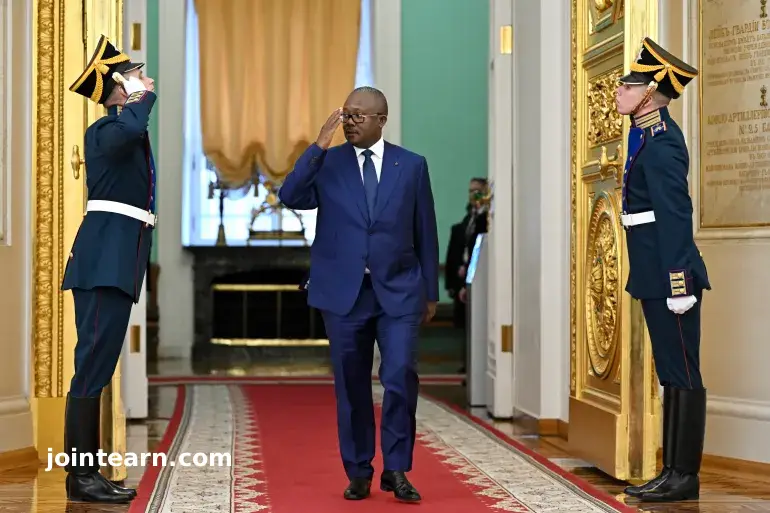
Authorities in Guinea-Bissau have arrested a number of senior army officers accused of plotting a coup, just days before the start of the country’s November general elections. The arrests heighten political tensions as President Umaro Sissoco Embalo faces disputes with opposition parties over the legitimacy of his current term in office.
Details of the Alleged Coup Attempt
The alleged plot reportedly involved several high-ranking officers, who were first reported missing on Monday.
- Brigadier General Dahaba Nawalna, director of a military training school, was identified as the alleged leader of the coup.
- Other senior officers detained include Commanders Domingos Nhanke and Mario Midana.
- Arrests were carried out at the officers’ homes in the capital, Bissau, on Thursday.
The Guinea-Bissau Armed Forces General Staff stated that the coup attempt aimed to “subvert the constitutional order”, threatening the country’s peace, stability, and prospects for economic development.
Deputy Chief of Staff, General Mamadu Ture Kuruma, emphasized at a press conference:
“This sad episode, which involves some general and senior officers of our Armed Forces, jeopardises the peace and stability so desired for socio-economic development and the attraction of foreign investment.”
Political Context: Embalo’s Contested Term
President Embalo, who first took office in 2020, is seeking a second term in the November 23 elections, despite opposition claims that his current mandate expired in February 2025. The Supreme Court of Justice has ruled that his term ends on September 4, but Embalo has maintained his candidacy.
- The main opposition parties have been disqualified from the upcoming elections.
- A West African regional mission sent earlier this year to mediate the political crisis left abruptly, citing threats from the government.
- Embalo warned that “no disorder will be tolerated”, affirming that measures are in place to protect candidates during the campaign.
Guinea-Bissau has a long history of political instability, having experienced multiple coups since independence from Portugal in 1974. However, recent elections since 2014 have attempted to strengthen the country’s rule of law and democratic processes.
Implications for November Elections
The arrests come on the eve of the general election campaign, which is scheduled to begin on Saturday. Analysts suggest:
- The alleged coup could intensify political tensions ahead of voting.
- Embalo’s incumbency and the disqualification of opposition parties may dominate the electoral landscape.
- International observers will closely watch the situation, given Guinea-Bissau’s history of military interference in politics.
International and Domestic Reactions
- Observers and human rights groups have expressed concern over political repression and the potential use of the military to influence elections.
- Embalo has asserted that the government has taken all necessary measures to ensure security and stability, emphasizing that democratic processes will continue despite the alleged coup attempt.
Conclusion
The arrests of senior military officers in Guinea-Bissau signal a renewed challenge to the country’s political stability just days before the November general elections. As President Embalo consolidates power amid opposition disputes, the situation highlights the ongoing fragility of governance and democratic institutions in the West African nation.


Leave a Reply